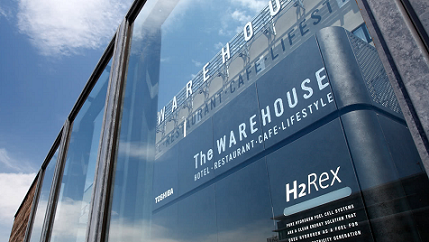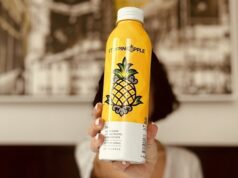 KAWASAKI CITY, JAPAN—In any conversation about green hotels, one of the hotels that deserves a lot of time is the Kawasaki King Skyfront Tokyu REI Hotel in Kawasaki City, Japan. The 186-room property is run by 100 percent renewable energy. Thirty percent of the energy is derived from hydrogen. Seventy percent of the energy is derived from food waste generated renewable energy. Since transitioning to 100 percent renewable energy the hotel has saved more than $15,000 per year.
KAWASAKI CITY, JAPAN—In any conversation about green hotels, one of the hotels that deserves a lot of time is the Kawasaki King Skyfront Tokyu REI Hotel in Kawasaki City, Japan. The 186-room property is run by 100 percent renewable energy. Thirty percent of the energy is derived from hydrogen. Seventy percent of the energy is derived from food waste generated renewable energy. Since transitioning to 100 percent renewable energy the hotel has saved more than $15,000 per year.
To generate hydrogen, used plastics (household plastic trash plus hotel amenities) are sent to Showa Denko K.K.’s hydrogen production facility where they are turned into hydrogen that is sent through pipelines to fuel cells. Hydrogen generated electricity used at the hotel meets 30 percent of the property’s electricity and hot water needs.
In one year, a total of 450,000kWh of power is generated with a total CO2 reduction effect of about 200,000kg. This is equivalent to providing electricity for 82 households of four people per day and reducing CO2 equal to that of 14,300 cedar trees.
Yokohama City is Location of Food Waste Plant
Since August 2019, Kawasaki King Skyfront Tokyu REI Hotel has participated in a project where its “food waste” is methane-fermented by microorganisms to generate electricity by using biogas as fuel. This process provides the balance—the remaining 70 percent—of electricity that the hotel needs. J Bio Food Recycle Co. Ltd is a recycling facility and biogas plant that processes the hotel’s food waste and is based in Yokohama city, established as a collaboration between East Japan Railway Company (JR East) and JFE Engineering Corp. It was designed to process up to 80 tons of food waste per day, with production of electricity having started in August 2018.
In 2020, a “plant growing module” was installed in the lobby of the hotel, so that guests staying there could visually experience the effects of renewable energy. The module and installation cost a total of approximately $829,000. This figure includes design costs, material procurement, etc. At a daily running cost of approximately $110, (running costs include consumable goods, electricity, etc.), lettuce is cultivated using hydrogen energy, and the harvested lettuce is then available to guests at the hotel restaurant. The plant module generates photosynthesis using an LED light source and hydroponics with a nutrient solution. As the total number of pesticide-free lettuces which can be planted at one time is 120, planting and harvesting is done in stages so that approximately 30 to 50 lettuces can be cultivated per week.
Tokyu Hotels cares for the global environment, and invites guests to participate in the Green Coin Program. The Green Coin Program aims to lower damage to the global environment by decreasing the number of toothbrushes and razors used daily at the hotels. Guests participating in the Green Coin Program, by not using the amenities listed, return a Green Coin for each amenity to the front desk. Tokyu Hotels’ donations, equivalent to the number of coins collected, are made throughout the year to two reforestation activities: the Children’s Forest Program and the Tokyu Hotels Green Coin Forests held in Tabayama village, Yamanashi Prefecture.
The Kawasaki King Skyfront Tokyu REI Hotel was selected to receive the grand prize of Kawasaki City’s “9th Smart Lifestyle Award” on October 30, 2020, which recognizes outstanding efforts such as carbon dioxide reduction. Kawasaki City, with the collaboration of various entities, is promoting efforts to reduce CO2. As part of this, in collaboration with the CC Kawasaki Eco-Conference, Kawasaki City has been commending excellent efforts of citizens and businesses that contribute to the reduction of CO2 and global warming countermeasures with the “Smart Lifestyle Award” since 2012.






